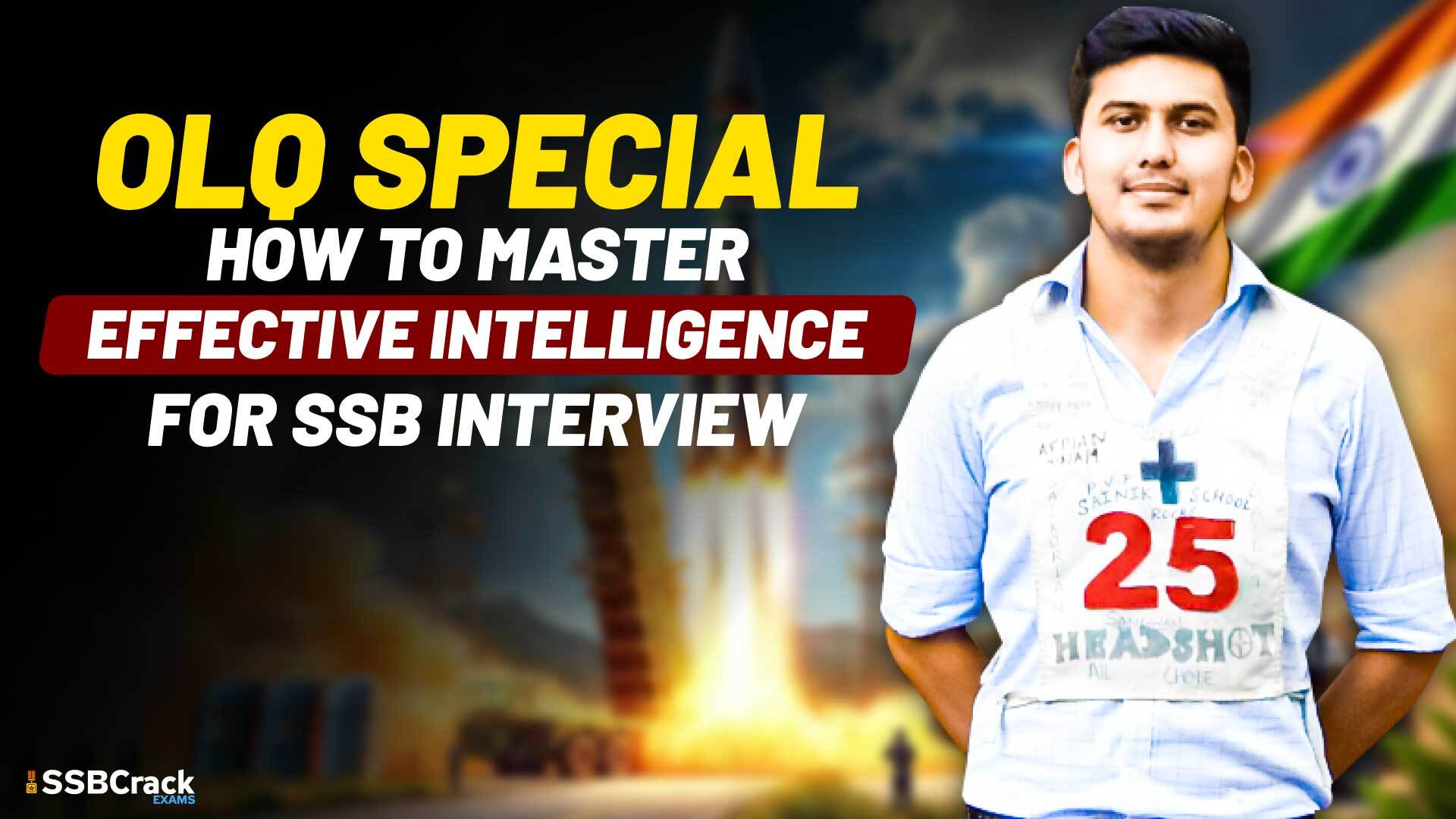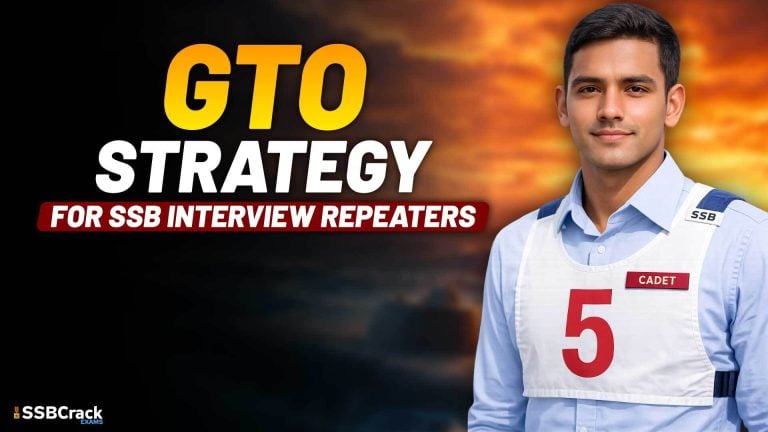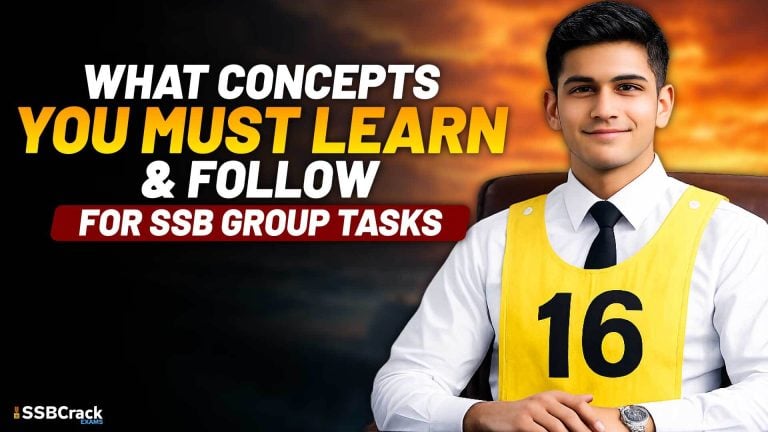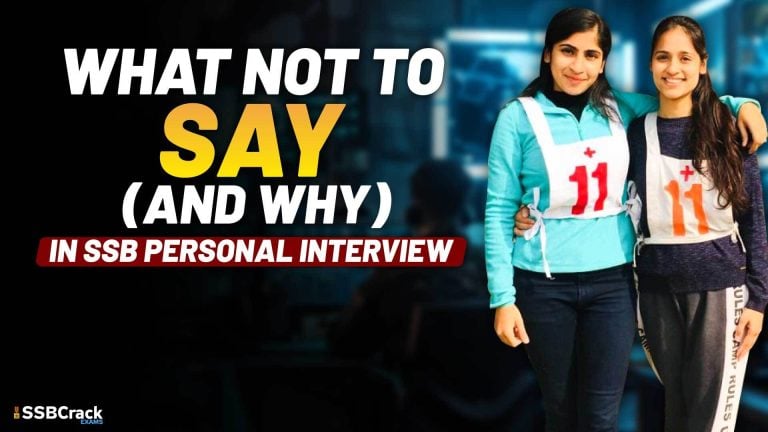In the SSB (Services Selection Board) Interview, one of the most critical and foundational Officer Like Qualities (OLQs) assessed is Effective Intelligence. This quality distinguishes a potential leader who can apply knowledge to solve real-life problems in unfamiliar, challenging, or stressful situations. Understanding and developing Effective Intelligence (EI) is key to getting recommended in SSB, as it underpins many aspects of the psychological, GTO, and interview rounds.
What is Effective Intelligence?
Effective Intelligence refers to:
“The practical ability to find solutions to day-to-day problems using available resources and logical reasoning without depending solely on academic knowledge.”
It indicates the candidate’s resourcefulness, pragmatic decision-making, and mental adaptability. A person with strong EI is quick to:
- Grasp a situation
- Evaluate variables
- Devise practical, feasible, and time-bound solutions
It’s not about being a genius or solving theoretical puzzles; rather, it’s about thinking on your feet, staying calm, and applying common sense effectively in real-life scenarios.
Where Is Effective Intelligence Assessed in SSB?
EI is evaluated across multiple stages of the SSB:
1. Psychological Tests
- Situation Reaction Test (SRT): You face 60 situations and must react in 30 seconds each. Your responses reflect how well you apply logic and resourcefulness.
- Thematic Apperception Test (TAT): Your stories reveal your practical approach to challenges.
2. GTO Tasks
- Group Planning Exercise (GPE): A map-based problem-solving task where you have to prioritize issues and come up with a plan.
- Progressive Group Task (PGT), Half Group Task (HGT), and Command Task: Test your real-time problem-solving with physical structures and group dynamics.
3. Personal Interview (PI)
- Situational questions like: “What will you do if your team doesn’t cooperate during a college project?” are used to gauge EI.
How Is Effective Intelligence Evaluated?
Assessors look for:
- Clarity of thought in problem-solving
- Speed of decision-making without panic
- Feasibility of solutions given available resources
- Sense of priority in dealing with multiple problems
- Initiative and adaptability in uncertain environments
They don’t just want a textbook answer—they’re looking for smart, real, and actionable responses.
How Can Aspirants Showcase Effective Intelligence?
During SSB, keep these key points in mind:
🔹 In SRT:
- Don’t write idealistic or overly emotional responses.
- Be practical: focus on rescue, safety, help-seeking, delegation, and use of available tools.
- Use words like “immediately,” “calmly,” “informed the authority,” “took initiative,” etc.
🔹 In GPE:
- Prioritize based on urgency, time constraints, casualties, and available transport.
- Divide tasks, create subgroups, and map routes efficiently.
- Speak confidently and logically when presenting.
🔹 In Command Task:
- Think aloud. Explain your reasoning for choosing a path or solution.
- Use helping material wisely, and don’t be afraid to re-plan if needed.
🔹 In Interview:
- Back your decisions with reasons. Don’t bluff.
- When given hypothetical scenarios, show clarity, quick thought, and grounded judgment.
To develop Effective Intelligence (EI) for the SSB Interview, aspirants should engage in everyday problem-solving and decision-making tasks that build mental adaptability, resourcefulness, and pragmatic thinking. The good news? You don’t need a training academy—you can build this quality at home, in school, college, or even at work through regular, focused activities.
Here’s a breakdown of practical, real-world tasks you can do in each environment to develop Effective Intelligence:
At Home
- Handle Small Emergencies Independently
- Fix a power outage issue, handle a plumbing problem, or troubleshoot internet/TV without calling for help first.
- EI Element: Self-reliance, improvisation, calm decision-making.
- Plan Family Outings or Events
- Manage budgets, choose locations, arrange transport, handle disputes.
- EI Element: Resource management, planning under constraints.
- Solve Domestic Conflicts or Misunderstandings
- Mediate between siblings, elders, or manage household issues diplomatically.
- EI Element: Interpersonal intelligence, solution-oriented thinking.
- Do-It-Yourself (DIY) Projects
- Repair a household item, make a tool organizer, or build something creative with limited tools.
- EI Element: Innovation, working with available materials.
At School or College
- Lead or Participate in Problem-Based Group Projects
- Take initiative in brainstorming, assigning tasks, and managing issues that arise mid-project.
- EI Element: Team-based decision making, priority setting.
- Organize a Club, Event, or Fest
- From budgeting and permissions to managing logistics and last-minute challenges.
- EI Element: Real-life execution, pressure handling, adaptability.
- Take Part in Debates & Extempore Speaking
- Learn to defend your viewpoint logically and on the spot.
- EI Element: Structured thinking under time pressure.
- Volunteer for College Maintenance/Helpdesk Work
- Solve issues faced by students or guests, act as a mediator during confusion.
- EI Element: Real-time response, empathy + logic combo.
At Workplace (Internship/Job/Part-Time)
- Handle Client Complaints or Urgent Task Failures
- Resolve problems by negotiating, redirecting, or offering solutions quickly.
- EI Element: Crisis management, communication clarity.
- Lead Small Teams or Report Problems to Superiors
- Take ownership of delays, inefficiencies, and suggest corrective action.
- EI Element: Accountability, proactive attitude.
- Work Within Constraints
- Deliver work on tight deadlines, limited manpower, or when key tools/software are down.
- EI Element: Adaptability, performance under pressure.
- Shadow a Manager or Observe Team Leadership
- See how they solve issues, allocate tasks, or manage sudden disruptions.
- EI Element: Learning through observation and applied insight.
Conclusion
Effective Intelligence is not about IQ or academic brilliance—it’s about how smartly and swiftly you can respond to real-life challenges with limited time and resources. If you’re preparing for the SSB Interview, developing this OLQ is non-negotiable. It will not only help you get recommended but also prepare you for the kind of dynamic, real-world decision-making required in the armed forces.
Start building your Effective Intelligence today—and become the officer the country needs tomorrow.







